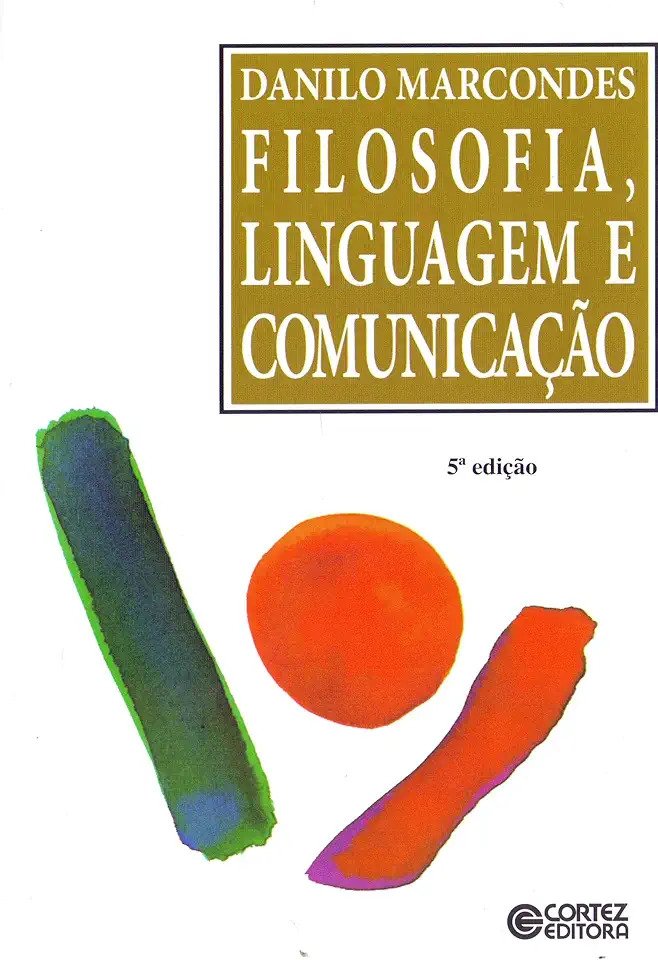
Philosophy, Language and Communication - Danilo Marcondes
Philosophy, Language and Communication: A Comprehensive Guide to the Interdisciplinary Study of Human Expression
Introduction: Exploring the Nexus of Philosophy, Language, and Communication
Danilo Marcondes' groundbreaking work, "Philosophy, Language and Communication," embarks on an intellectual journey that delves into the intricate relationship between philosophy, language, and communication. This comprehensive guide offers a profound exploration of how these disciplines intersect, shaping our understanding of human expression and the world around us.
Chapter 1: The Philosophical Foundations of Language and Communication
Marcondes begins by establishing the philosophical underpinnings of language and communication. He examines the nature of language, its origins, and its role in human cognition. Drawing upon the works of renowned philosophers such as Ludwig Wittgenstein, Martin Heidegger, and Jacques Derrida, Marcondes provides a comprehensive analysis of the philosophical debates surrounding language and its relationship to thought, reality, and truth.
Chapter 2: Language and the Construction of Meaning
In this chapter, Marcondes explores the intricate ways in which language constructs meaning. He examines the role of grammar, syntax, and semantics in shaping our understanding of the world. Drawing upon insights from linguistics, semiotics, and pragmatics, Marcondes demonstrates how language is not merely a tool for communication, but also a powerful force that shapes our perceptions and experiences.
Chapter 3: Communication and the Social Context
Moving beyond the individual, Marcondes delves into the social context of communication. He examines the role of language in shaping social interactions, power dynamics, and cultural norms. Drawing upon the works of sociologists, anthropologists, and communication theorists, Marcondes provides a nuanced understanding of how communication shapes our social realities and influences our relationships with others.
Chapter 4: Language and the Media
In the age of mass media and digital communication, Marcondes explores the complex relationship between language and the media. He examines the role of media technologies in shaping public discourse, disseminating information, and influencing our understanding of the world. Drawing upon insights from media studies, cultural studies, and political science, Marcondes provides a critical analysis of the impact of media on our linguistic practices and social interactions.
Chapter 5: Language and the Arts
Marcondes concludes his exploration by examining the role of language in the arts. He analyzes how language is used in literature, poetry, music, and other artistic forms to create meaning, evoke emotions, and challenge our perceptions of reality. Drawing upon the works of literary theorists, art historians, and musicologists, Marcondes provides a rich understanding of the ways in which language transcends its communicative function and becomes a powerful tool for artistic expression.
Conclusion: The Enduring Significance of Philosophy, Language, and Communication
"Philosophy, Language and Communication" is a tour de force that offers a comprehensive and interdisciplinary exploration of the relationship between philosophy, language, and communication. Marcondes' profound insights and engaging writing style make this book an essential read for anyone interested in understanding the complexities of human expression and the ways in which language shapes our world.
Why You Should Read This Book:
- Gain a comprehensive understanding of the philosophical foundations of language and communication.
- Explore the intricate ways in which language constructs meaning and shapes our understanding of the world.
- Delve into the social context of communication and its impact on social interactions, power dynamics, and cultural norms.
- Analyze the complex relationship between language and the media, and its influence on public discourse and our social realities.
- Discover the role of language in the arts and its power to create meaning, evoke emotions, and challenge our perceptions of reality.
"Philosophy, Language and Communication" is an intellectual journey that will enrich your understanding of human expression and the world around you. Get your copy today and embark on a transformative exploration of the interdisciplinary study of language and communication.